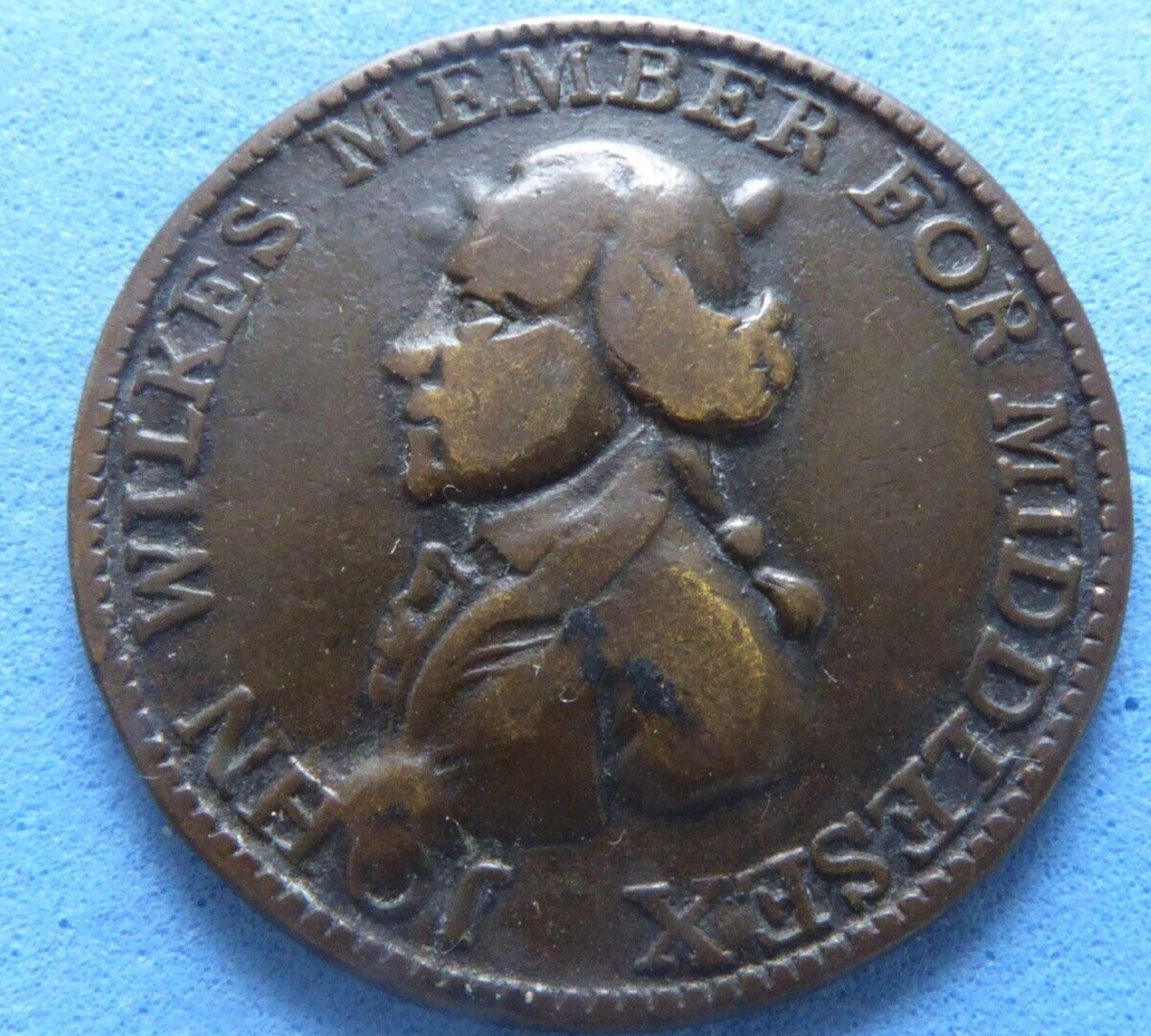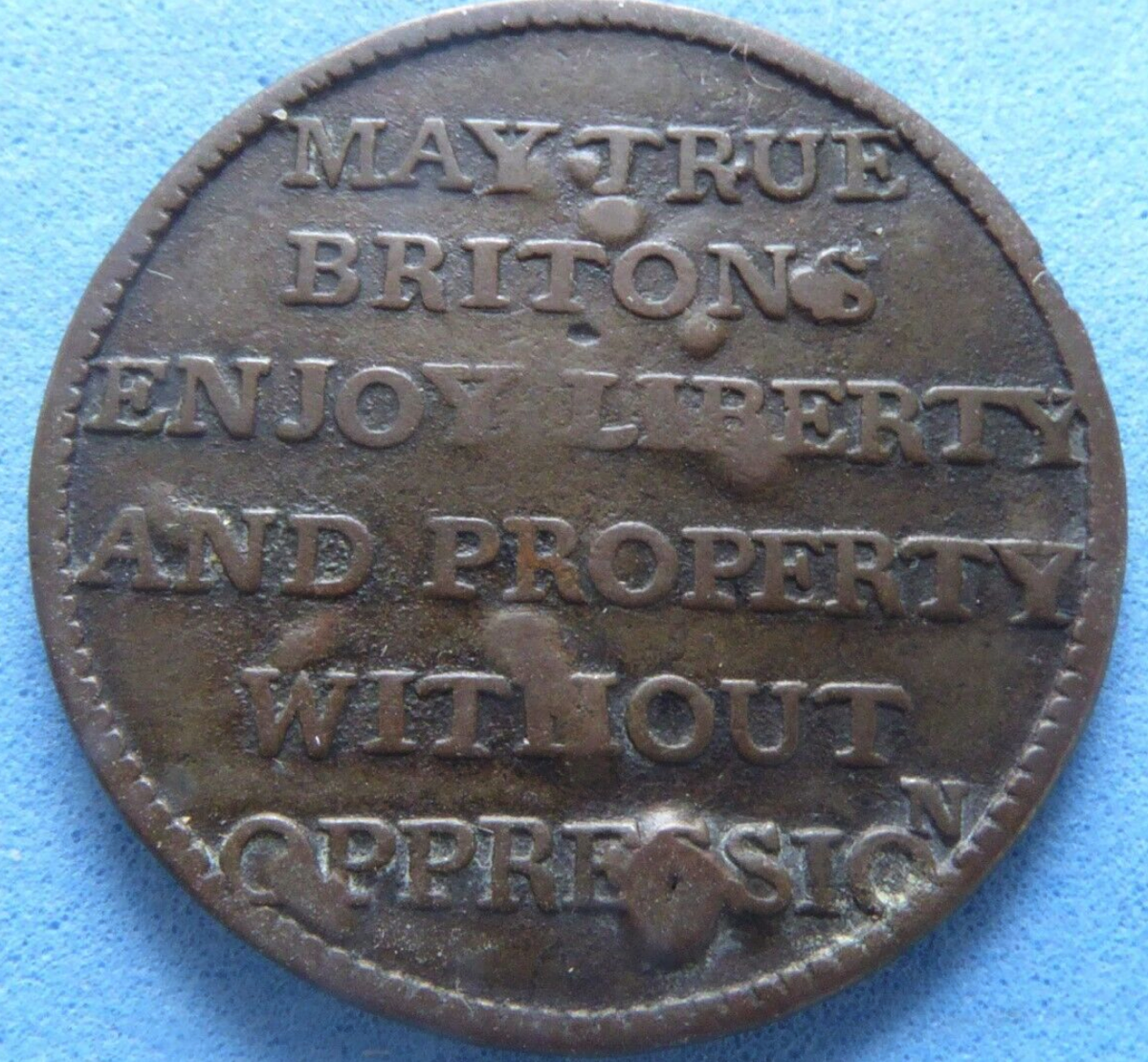John Wilkes Member for Middlesex
May True Britons Enjoy Liberty and Property Without Oppression


John Wilkes (1725–97) was a radical politician and editor of the satirical pamphlet the North Briton. In 1763 he was arrested under a General Warrant for libelling King George III and his newly appointed ministry for making too generous a peace with France. General Warrants were issued to arrest any person suspected of involvement in a publication and authorised the searching of their property until evidence of criminal activity was found.
On his release from imprisonment in the Tower of London on grounds of parliamentary privilege Wilkes challenged the legality of General Warrants and made popular appeal to Magna Carta. However, the House of Commons ruled that seditious libel was not in fact covered by parliamentary privilege and Wilkes fled to France in order to escape prosecution (1763–68).
In January 1764 Wilkes was expelled from the House of Commons but the concern aroused by the General Warrants led to them being no longer used.
Wilkes returned to London in 1768 and was elected as MP for Middlesex at the General Election. In 1769 he was expelled from the House of Commons on grounds of seditious and obscene libels. Wilkes was re-elected at three by-elections but the Commons overturned the results each time. Eventually Wilkes was elected for Middlesex in 1774 and represented the county until 1790. Whilst in Parliament Wilkes made the first ever motion for Parliamentary reform.
Wilkes' activities generated significant interest by newspapers in Parliament's proceedings at a time when the reporting of debates was not allowed. In 1771 Wilkes was able to use his influence first as alderman and later as Mayor of the City of London to force the Government to relax the restrictions, thereby establishing the freedom of the press to report on Parliament.
Following his arrest in 1763 Wilkes was presented with a Lilburne medal and copy of Theodorus Verax’s The Triall of Lieut. Colonell John Lilburne (1649) by his supporters.
On his release from imprisonment in the Tower of London on grounds of parliamentary privilege Wilkes challenged the legality of General Warrants and made popular appeal to Magna Carta. However, the House of Commons ruled that seditious libel was not in fact covered by parliamentary privilege and Wilkes fled to France in order to escape prosecution (1763–68).
In January 1764 Wilkes was expelled from the House of Commons but the concern aroused by the General Warrants led to them being no longer used.
Wilkes returned to London in 1768 and was elected as MP for Middlesex at the General Election. In 1769 he was expelled from the House of Commons on grounds of seditious and obscene libels. Wilkes was re-elected at three by-elections but the Commons overturned the results each time. Eventually Wilkes was elected for Middlesex in 1774 and represented the county until 1790. Whilst in Parliament Wilkes made the first ever motion for Parliamentary reform.
Wilkes' activities generated significant interest by newspapers in Parliament's proceedings at a time when the reporting of debates was not allowed. In 1771 Wilkes was able to use his influence first as alderman and later as Mayor of the City of London to force the Government to relax the restrictions, thereby establishing the freedom of the press to report on Parliament.
Following his arrest in 1763 Wilkes was presented with a Lilburne medal and copy of Theodorus Verax’s The Triall of Lieut. Colonell John Lilburne (1649) by his supporters.